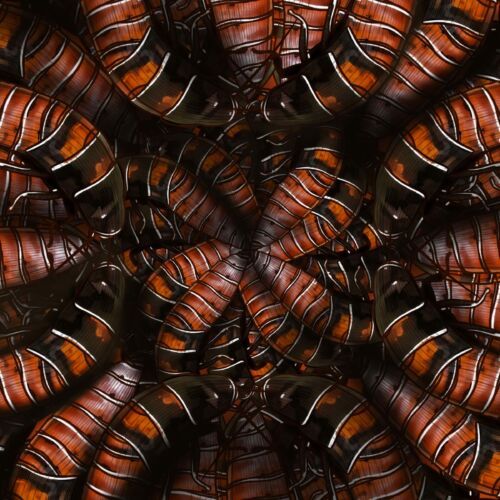CO₂ sequestering cows and sewage treatment fish
Producing 1 kg of beef emits almost 100 kg of CO₂. Just under a quarter z of this 100 kg is the result of land use changes (e.g. deforestation) and just over half is farm emissions (methane produced by cows, greenhouse gases produced by equipment, manure and fertilisers). In some grazing systems and techniques, however, cattle can sequester carbon in the soil, compensating for emissions from other sources. This happens when animals are moved from place to place to mimic the migrations of wild ruminants. In addition, cattle, by eating plants, encourage greater biodiversity and contribute to the extension of the vegetative period of plants.
Air pollution prevents insects from being guided by the scent of the crops and wildflowers they pollinate. In addition, ozone contaminates plants almost immediately, disrupting their pollination by bees and butterflies. This gas leaves traces of different shades and shapes on the plants and discolours their leaves.
Considered a wrecker, a species of catfish known as devilfish or suckermouth may prove very useful in filtering wastewater from the ceramics industry. Ground catfish paste combined with iron-rich salt acts as a coagulant – removing 94% of the solids in the effluent and reducing the organic material index by 79%. Meanwhile, the saliva of wax moth caterpillars – a pest that attacks and destroys honey bee hives – contains enzymes that easily decompose polyethylene in about an hour, causing it to aerate. Polyethylene is a strong and very slowly decomposing plastic in nature, highly resistant to oxygen.


























